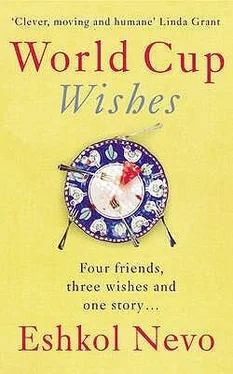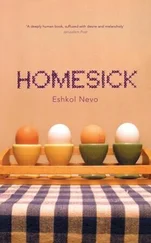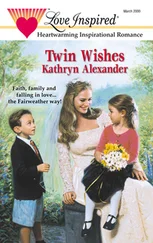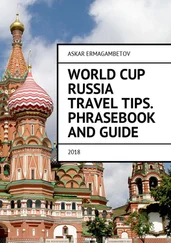But Ofir took it hard. He said that what bothered him most was the army grant. He’d been counting on using it for his trip to Thailand, but I knew that the whole story of working in the petrol station was just an attempt, another attempt, to get closer to his father.
He never gave up on that. A year after the petrol station fiasco, he took all the money he’d saved for Thailand and invited his father on a man’s tour of eastern Turkey. He laid out the plan for me the night before they left: we’ll sleep in tents, cook in the field. Finally we’ll have the chance to really get to know each other!
The first worrying signs appeared at the airport. His father thought it wasn’t appropriate to board a plane wearing jeans torn at the knees. Ofir said he didn’t get it, why people feel the need to dress up for a flight. You know what, do what you want, his father grumbled, but I want you to know that your trousers are a personal insult to me. Ofir went into the bathroom and changed, consoling himself with the thought that all beginnings are hard. But later on, when they started their trip through the mountains, things just got worse. Ofir’s father didn’t understand why they needed such long breaks that disrupted their walking, and Ofir thought that those moments, when you take off your rucksack and you sit back and enjoy the scenery while the wind cools the sweat on your back, were the best moments of the trip. You know what, his father said, we’ll take turns deciding when the break is over. Great, Ofir said, thinking that at long last it was starting to happen. But later, when they went down to the city to buy supplies, the problems began again. His father didn’t understand how you could walk around a new city without a map. Ofir thought that all the magic was in walking around a new city without a map, without knowing where you’re going, just walking around and absorbing the sounds, the smells, the colours. You know what, if I’m getting in the way of your ‘absorbing’, then carry on without me, his father grumbled, and after a week of petty arguments, Ofir’s nerves were frayed, so he said, you know what, Dad, that’s exactly what I’m going to do, and they spent the last day of their trip, in Istanbul, apart.
They didn’t go to the airport together either, because Ofir wanted to take a taxi and his father said that his mother always spoiled him, and that a taxi was a waste of money, and Ofir said it was his money and he’d decide what to do with it. And it continued like that on the plane — insult, silence, insult, silence — till Ofir’s father got up and moved to another seat.
But even the failure of the trip, however much it hurt, didn’t break Ofir. After a short recovery period, he tried again, armed with a new insight: the mistake on the trip was — he explained to me — that I tried to force my father to do things with me that I like to do. Tomorrow I’m buying a model aeroplane and on Saturday morning, I’ll join him down below, you know, on Freud Street.
Every Saturday morning, in an open field at the entrance to the city (where today, a retail park has blossomed), fathers and sons would get together to fly model aeroplanes. When Ofir was a boy, and his father was still married to his mother, his father asked him to go there with him a few times. But Ofir would always want to stay at home with his mother and play Scrabble, and later too, when the third wife had already given birth to two girls, Ofir’s father continued to go down to the open field, alone, to fly his model plane, alone, and heard the cries of excitement coming from children who were not his.
That would be an amazing way to close the circle, Ofir told me. I’m not even planning to tell him I’m coming, so it’ll be a complete surprise. It’s a great idea, don’t you think?
Definitely, I said supportively. I wondered why he was always the one to make the attempts to get closer, but his enthusiasm was so innocent, so touching, that I was carried away by it. And I hoped for him.
You should have seen my father’s face when he saw me walking over with the model plane, Ofir said emotionally when he called me on Saturday night.
He was surprised?
Shocked.
And how was it later?
Later?
With the planes?
Good … it … there was a small collision between my plane and his, which is worth ten thousand shekels. And they both crashed onto the road. Then he said that perhaps I’d better leave. He didn’t need me to help him pick up the pieces. But I’m telling you, the expression on his face … when he saw me coming … he said he appreciated it. He said he appreciated it very much. And this morning I had a great idea. A fantastic idea. You know, they opened a new petrol station across the street from his, and they’re stealing his customers. That’s a classic problem that advertising can solve. I talked with the art department in our office and they volunteered to do everything, free of charge. I’m telling you, in another month, I’ll be in his office with a campaign that’ll bring back his old customers and get him a lot of new ones too!
Ofir mustered all the creative talent he had and worked for a month and a half preparing that winning campaign for his father’s petrol station, including stickers, posters, flyers and banners, but a day before the formal presentation –
His father had terrible pain in his lower jaw, asked his secretary to make a dentist’s appointment for him, and an hour later, collapsed on his office carpet and died.
A heart attack.
If he’d had a subscription to Telemed, we might have been able to save him, Amichai whispered to me at the funeral.
And Ofir was left to glide like a model aeroplane over the chasm that had always existed between him and his father, doomed to wonder whether the great campaign might have succeeded where all other efforts had failed, and why did he need a campaign, dammit, why didn’t his father just love him?
*
When I reached the ward where Ofir was, the others were already there.
Churchill. And Amichai, holding a huge tape recorder, and Ilana the Weeper, and someone from the ad agency, talking on his mobile.
There was a pungent smell of chicken soup in the air. And on the TV, someone wearing a white apron was explaining how to make steak fillets in teriyaki sauce. My legs wouldn’t budge. Couldn’t move forward. Couldn’t move back. I was flooded with warm happiness at the sight of my friends, but along with it, the affront that had been growing in me over six months rose in my throat, as well as a feeling of cold, uncontrollable aversion towards Churchill.
Amichai took the initiative and came over to me with the huge tape recorder. Churchill, behind him, kept a safe distance.
His mother’s inside, Amichai explained. When she comes out, they’ll let us go in.
How is he? I asked, careful to look only at Amichai.
Looks like he’ll live, he replied.
But what … how … what does it mean, he had a breakdown?
Two months ago, they offered him a promotion at work. A managerial position. He didn’t want it. He told us a few times that he didn’t want to be a manager. That after working in eight different agencies in seven years, he finally came to the conclusion that all advertising does is manipulate people into buying things they don’t need, and if he doesn’t believe that what he does is important, then how can he persuade other people that it is?
OK, I said, swallowing my frustration at not having been a part of that whole process of trying to decide. So how did we get from that to …
That’s just it, Amichai said playing with the tape recorder buttons, it was a bit weird. Two weeks after non-stop talking about that whole manipulation business, he calls Churchill one day and says, hey man, congratulate me.
Читать дальше












